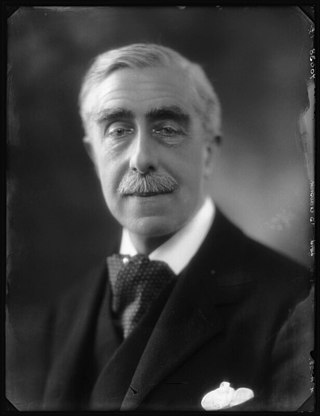Related Research Articles

The Right Honourable is an honorific style traditionally applied to certain persons and collective bodies in the United Kingdom, the former British Empire and the Commonwealth of Nations. The term is predominantly used today as a style associated with the holding of certain senior public offices in the United Kingdom, Canada, New Zealand, and, to a lesser extent, Australia.

The Postmaster General of Canada was the Canadian cabinet minister responsible for the Post Office Department. In 1851, management of the post office was transferred from Britain to the provincial governments of the Province of Canada, New Brunswick, Newfoundland, Nova Scotia and Prince Edward Island. The position of Postmaster General was established in each province. With Canadian Confederation in 1867, a single position was created replacing this post in all of the above provinces except Newfoundland; this position was abolished in 1981 when the post office was transformed from a government department into a crown corporation. Since 1981 Canada Post has been led by a President and CEO. From 1900 until 1909 the Postmaster General was also responsible for the Department of Labour. It now reports to the Minister of Public Services and Procurement.

Charles Bathurst, 1st Viscount Bledisloe, was a British Conservative politician and colonial governor. He was Governor-General of New Zealand from 1930 to 1935.

The Solicitor-General for Ireland was the holder of an Irish and then United Kingdom government office. The holder was a deputy to the Attorney-General for Ireland, and advised the Crown on Irish legal matters. On rare occasions, there was also a Deputy Attorney-General, who was distinct from the Solicitor-General. At least two holders of the office, Patrick Barnewall (1534–1550) and Sir Roger Wilbraham (1586-1603), played a leading role in Government, although in Barnewall's case this may be partly because he was also King's Serjeant. As with the Solicitor General for England and Wales, the Solicitor-General for Ireland was usually a barrister rather than a solicitor.

The Twelfth Canadian Ministry was the first cabinet chaired by Prime Minister William Lyon Mackenzie King. It governed Canada from 29 December 1921 to 28 June 1926, including the 14th Canadian Parliament and most of the 15th. The government was formed by the Liberal Party of Canada. Mackenzie King was also Prime Minister in the Fourteenth and Sixteenth Canadian Ministries.

The Eleventh Canadian Ministry was the first cabinet chaired by Prime Minister Arthur Meighen. It governed Canada from 10 July 1920 to 29 December 1921, including only the last year of the 13th Canadian Parliament. The government was formed by the National Liberal and Conservative Party. Meighen was also Prime Minister in the Thirteenth Canadian Ministry.

The Tenth Canadian Ministry was the second cabinet chaired by Prime Minister Sir Robert Borden. It governed Canada from 12 October 1917 to 10 July 1920, including most of the 13th Canadian Parliament. The government was formed by the Unionists, a war-time coalition between the old Conservative Party of Canada and some members of the Liberal Party of Canada. Borden was also Prime Minister in the Ninth Canadian Ministry, but formed a coalition ministry for the 1917 Canadian federal election.

The Ninth Canadian Ministry was the first cabinet chaired by Prime Minister Sir Robert Borden. It governed Canada from 10 October 1911 to 12 October 1917, including only the 12th Canadian Parliament. The government was formed by the old Conservative Party of Canada. The Conservatives governed in coalition with the Liberal-Conservative Party until 12 October 1916 when the last Liberal-Conservative cabinet minister, Sam Hughes, was dismissed. Borden was also Prime Minister in the Tenth Canadian Ministry, which he formed for the coalition government with the Liberal–Unionists in the lead up to the 1917 Canadian federal election.
William Malcolm Hailey, 1st Baron Hailey, known as Sir Malcolm Hailey between 1921 and 1936, was a British peer and administrator in British India.
Deputy lieutenants of Aberdeen are commissioned by the Lord Provost of Aberdeen who, since 1899 by virtue of office, is also Lord-Lieutenant of Aberdeen City.
The 1945 Dissolution Honours List was issued on 7 June to mark the dissolution of the United Kingdom parliament prior to the 1945 general election.
References
- "King's Privy Council for Canada - Canada.ca". Privy Council Office.
- "Parliamentarians sworn in as members of the Queen's Privy Council for Canada". Parliament of Canada. Retrieved February 22, 2012.